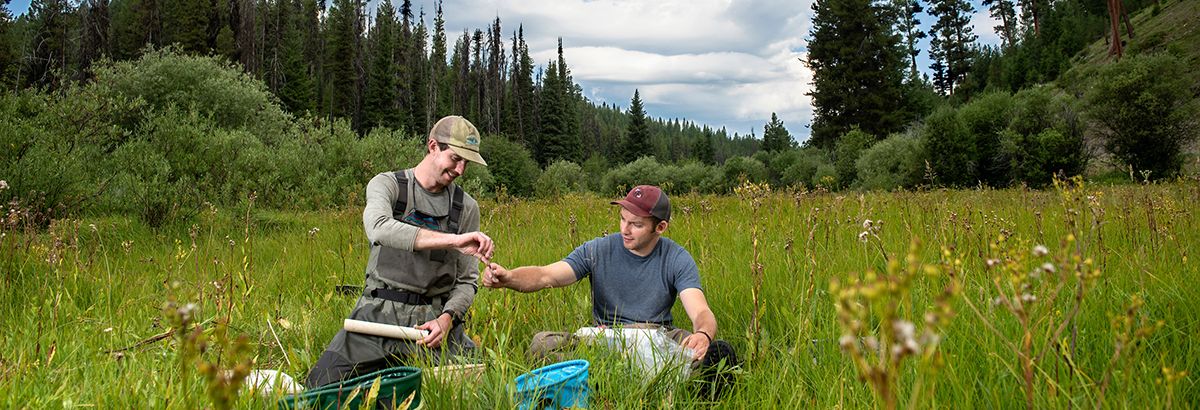Student Spotlight: Rebekah Brassfield (2022)

In Episode 60, we hear from Rebekah Brassfield, a graduate student in the Systems Ecology program. Rebekah shares about her thesis research examining the nutritional needs of bumblebees. She also discusses the importance of understanding fundamental issues to address conservation efforts.
Story Transcript
The bumblebees that I work with are just they’re fascinating little creatures. It's just such a beautiful moment to behold this bumblebee that's just kind of still and you just get to look at whatever they're doing, and they sit there and they kind of brush their hair back and look really nice, and you take pictures of them. And then they just like go back to their everyday life. It's really fun.
My name is Rebekah Brassfield. I'm a first-year master's student. I'm in the Systems Ecology program in Diana Six's lab.
My research specifically, I got interested in looking at the nutritional needs of bumblebees. A lot of research in pollinator studies goes into honeybees because honeybees are agricultural. So, they're livestock, and they're really accessible and easy to study, but I think bumblebees is where it's at. They’re native pollinators. So, I'm taking some of these ideas that we've been applying to honeybees, which is collecting a honeybee and then you determine its ratios of carbon, hydrogen oxygen, you know, this suite of elements. And if I can figure out what that ratio of elements is in the body of bees, I can easily look at the ratio of those elements in pollen and figure out how bees are meeting those needs. You know, if they're looking at one flower or if they're, you know, pollinating multiple flowers that all of that kind of ties into just this really kind of basic understanding of where they're getting their food.
If we can say specifically, this flower is good for this bee we can link those up and make conservation efforts really pointed. It's the exact same thing that we did with Monarch butterflies and milkweed. We figured out Monarch butterflies needed milkweed. So, we started planting milkweed and Monarch butterfly populations started going up again. And so, it's the exact same idea of we can conserve these species. We just need to understand kind of the fundamentals of what's going on in order to pointedly make conservation efforts towards that.
Without bees we're in really, really big trouble. And bumblebee populations specifically have been declining globally, and there's so many components to why they're declining. This feels like a very small component, but to me this feels like a really big thing to understand.
I think as I look around me at the way our land use is changing at the way our environment is changing. And unfortunately, with climate change, I see a lot of kind of scary things in the future. So, it means a lot to me to try and contribute what I can to this much broader effort of conservation and preservation and basically doing anything that I can to kind of make this planet last longer than, than my lifetime.
